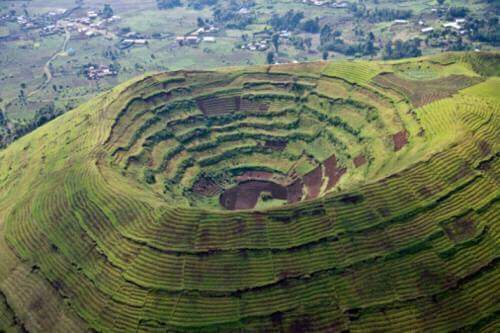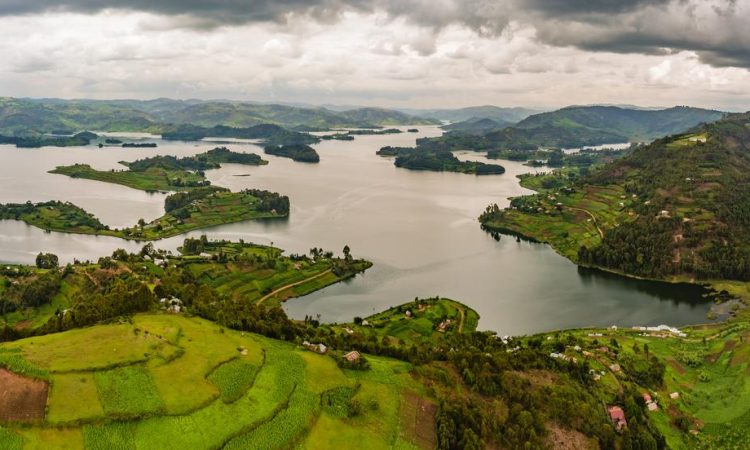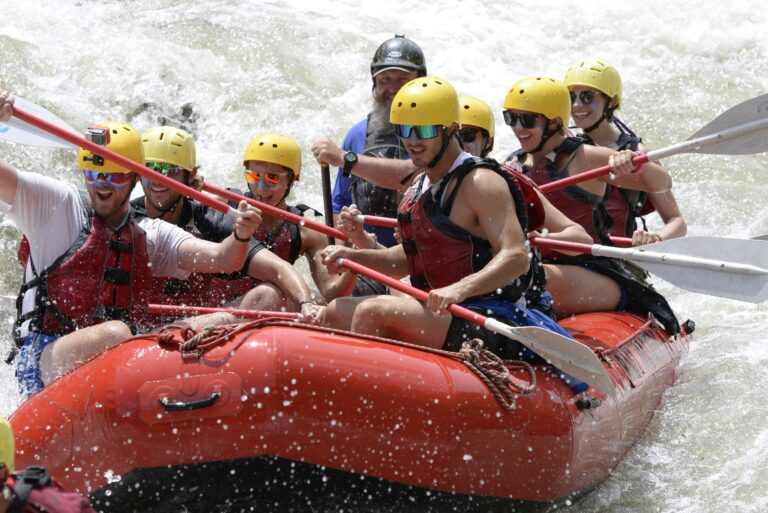History
Ancient history and settlement.
The region is uniquely characterized by the Albertine Rift, or Western Rift Valley, and the African Great Lakes, which include Lake Bunyonyi, Lake Edward, Lake Mutanda and Lake Kyahafi. Kigezi is also the home to the chain of volcanic mountains, the Virunga Mountains, located in what is now Kisoro District, and which also form the south-west Uganda border with the Democratic Republic of Congo and Rwanda. Located in the Ugandan part of the Virunga Mountains is Mgahinga Gorilla National Park which, along with the nearby Bwindi Impenetrable National Park are home to the internationally famous mountain gorilla populations. The mountains also form part of the watershed between the two major African rivers, the Nile and the Congo, with the highest peak on the Uganda side of the border being Mount Muhabura. In the intervening valleys, often one finds expansive swampy areas, some of which, particularly those in Kabale District, have been reclaimed for pastureland.


Highlight
Lake Bunyonyi
Lake Bunyonyi – Tourist Key Information
Overview:
Lake Bunyonyi, located in southwestern Uganda, is one of the country’s most picturesque lakes, known for its stunning scenery, rich biodiversity, and cultural significance. Surrounded by terraced hills and lush landscapes, it is often referred to as “the place of many little birds,” thanks to its diverse avian population. The lake is a popular destination for relaxation, adventure, and cultural experiences, making it a must-visit spot for travelers.
Main Attractions:
Island Hopping:
Lake Bunyonyi features 29 islands, each with its own unique charm. Visitors can take canoe trips or boat tours to explore these islands, including Akampene Island (also known as Punishment Island), where young women were once abandoned for being pregnant.Bird Watching:
The lake is home to over 200 bird species, making it a paradise for birdwatchers. Some notable species include the African kingfisher, herons, and the elusive shoebill stork.Canoeing and Kayaking:
The calm waters of Lake Bunyonyi make it ideal for canoeing and kayaking. Visitors can rent boats or join guided tours to enjoy the serene surroundings and stunning views of the terraced hills.Swimming and Relaxation:
Unlike many lakes in Uganda, Lake Bunyonyi is safe for swimming, thanks to its deep waters and lack of dangerous wildlife. Many visitors enjoy swimming, sunbathing, and relaxing along the lake’s shores.Cultural Experiences:
The surrounding communities offer opportunities for cultural interactions. Visitors can engage in traditional activities, visit local villages, and learn about the customs and lifestyle of the Bakiga and Batwa people.Nature Walks and Hiking:
The area around Lake Bunyonyi is perfect for hiking and nature walks. Trails through the hills provide breathtaking views of the lake and surrounding landscape, as well as encounters with local wildlife and plants.
Climate:
Lake Bunyonyi has a temperate climate due to its high altitude, with temperatures typically ranging from 15°C to 25°C (59°F to 77°F). The region experiences two rainy seasons: March to May and September to November, while the dry months from June to August and December to February are often more favorable for outdoor activities.
Best Time to Visit:
The dry seasons are ideal for visiting Lake Bunyonyi, as the weather is pleasant for outdoor activities, hiking, and birdwatching. However, the lush landscapes during the rainy season also offer a unique beauty, with vibrant greenery and fewer tourists.
Getting There:
Lake Bunyonyi is approximately a 7-hour drive from Kampala. The most common route is through Kabale, a nearby town that serves as a gateway to the lake. Local transportation options include buses and private car hires, while many accommodations offer shuttle services from Kampala or surrounding areas.

